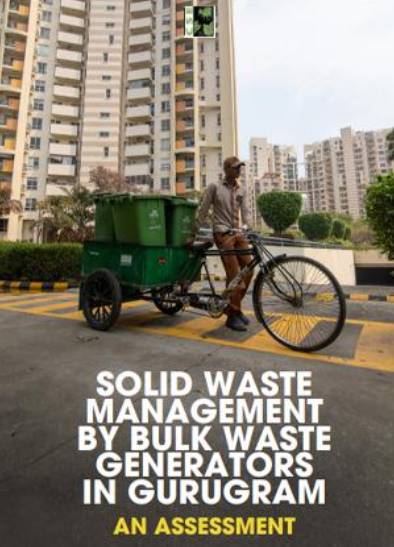Like all emerging cities in India, the Millennium City of Gurugram bears an unwholesome burden – that of the huge mountains of solid waste it generates, much of which is organic or wet waste. Almost 30-40 per cent of this waste comes from what are known as Bulk Waste Generators (BWGs) – residential and gated societies, offices, hotels, institutional campuses etc that produce, on an average, 50 kg or more of all kinds waste every day. The Solid Waste Management Rules, 2016 advise cities to adopt a community-based waste management system and emphasise on on-site or decentralised management of segregated organic waste. They also mandate BWGs to carry out certain waste management functions themselves – such as segregation, handling and disposing of organic waste through composting or bio-methanation within their premises; developing a system for reusing the products of processing such as compost, biogas etc; and handing over dry and other recyclable wastes to the corporation or to authorised agencies.
How are Gurugram BWGs faring when it comes to fulfilling this mandate? How far has the Municipal Corporation of Gurugram succeeded in living up to its part of the responsibility? This ground-level assessment by Centre for Science and Environment’s Solid Waste Management team tries to dig deep to find the answers.
Download File

